Confucianism
One of Three Ancient Chinese Philosophy
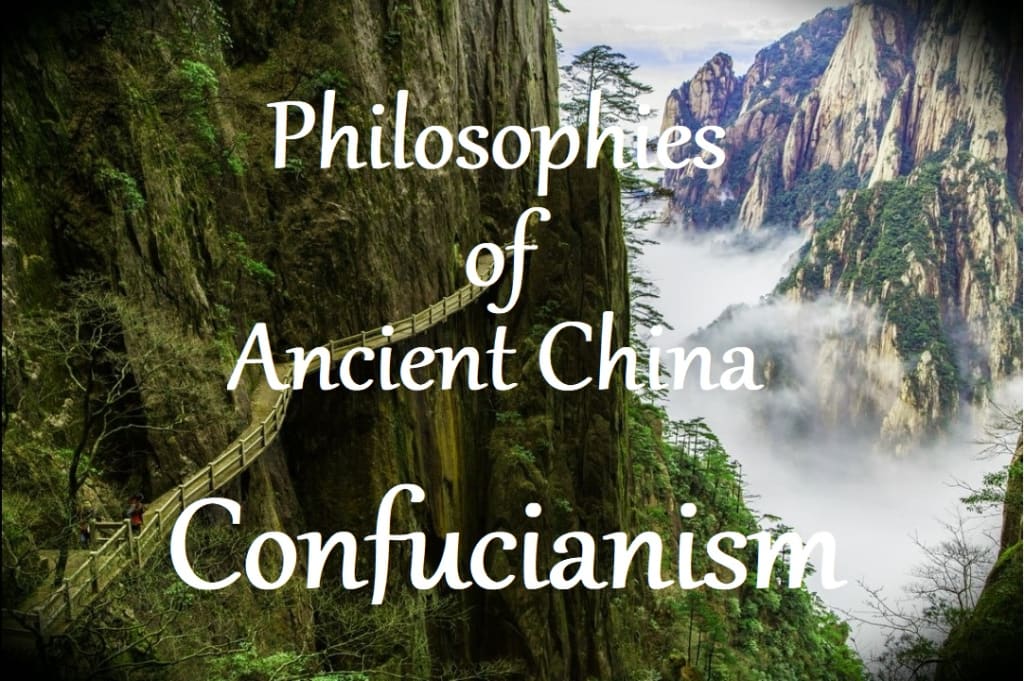
Ancient China became the great behemoth of the east following the guidance of three ancient teachings: Confucianism, Taoism, and Buddhism. Originally, I had planned to put all three into this article, but I realized that to get a true understanding of each, this would be far too long. Instead, each will get its own article and we shall begin with Confucianism. We will start our exploration of Confucius and the philosophy that he developed with some tales…
Tales of the Yellow Emperor
Once Nu Gua (as we saw last time) populated the Earth, the Gods showed more interest in descending from the Heavens and enjoying the unique qualities of Earth. Along with four others, Huang Ti (also: Huangdi) descended the ladder which separated Heaven from Earth. They decided that one of the five should be their leader and Huang Ti was the obvious choice for three of them. Born of the God of Thunder, Huang Ti spoke from birth and befriended each of the spirit birds. Phoenixes travelled over great distances for the chance to serenade him with their lovely songs. He had four faces and on each was the powerful determination and benevolent energy of a true ruler. Chih Ti (also: Yandi), Huang Ti’s half brother and God of Fire, alone dissented.
Chih Ti rose up against Huang Ti on the field of Banquan in east China. To meet him, Huang Ti brought strong allies, including wolves, leopards, bears, and massive birds of prey. Huang Ti’s army didn’t stop until each member of Chih Ti’s army was slaughtered. Afterwards, Huang Ti was the undeniable ruler and he split the territory into four equal parts with the Green Emperor in the east, the White Emperor in the west, the Black Emperor in the north, and Chih Ti, the Red Emperor of the South. Huang Ti then became the Yellow Emperor, ruling over all from a great divine palace he constructed on Mount Kunlun.
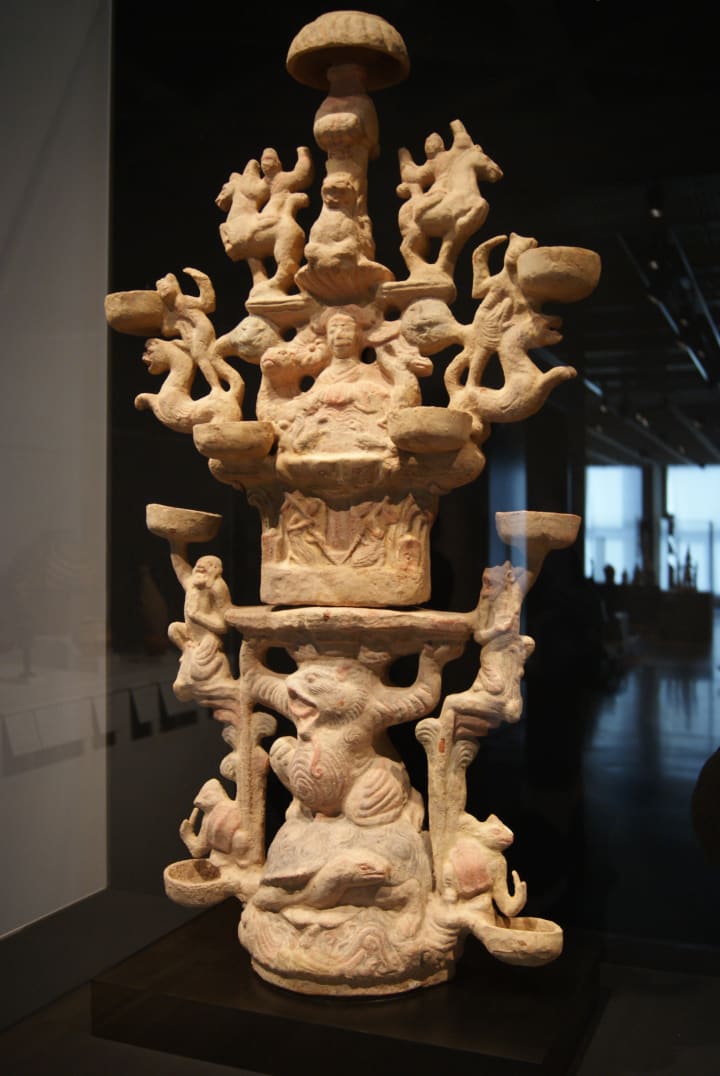
This palace consisted of at least five cities with twelve towers surrounded by a wall of jade. Nine fire mountains encircled it, which burned night and day and cast a warm glow upon the denizens of the palace. There were luscious gardens with pearl and jade trees which blossomed all year round. There were also dan trees, which bore five different fruits that were only to be sampled by the Yellow Emperor himself. The largest was the Hanging Garden, in which the Yellow Emperor chose to spend much of his leisure time, enjoying the setting sun which cast a beautiful glow on the world around him. There was even a path through the Hanging Garden which led directly to Heaven so the other Gods could easily travel between the two realms and enjoy pleasures which rivalled those available in Heaven. It was guarded by Li Zhu, a three-headed God who never let all three of his heads sleep at once. Its front entrance was guarded by Kaiming, a protector of the Gods. He had the body of a giant panther but nine heads, each with a human face on it.
From this great palace, the Yellow Emperor would rule for many years, bestowing wisdom and kindness upon the people of Earth. It is said that he developed many astronomical instruments, mathematics, and the first calendar.
Before we go back to the story of our Great Yellow Emperor, I would like to add a bit about our rebellious friend, the Red Emperor. Despite the failed rebellion, his people cared deeply for him and honored him. Almost immediately, he showed his people how to work metal into tools and how to use fire to cook their food. He also taught them to clear the forests to prevent dangerous animals from attacking them.
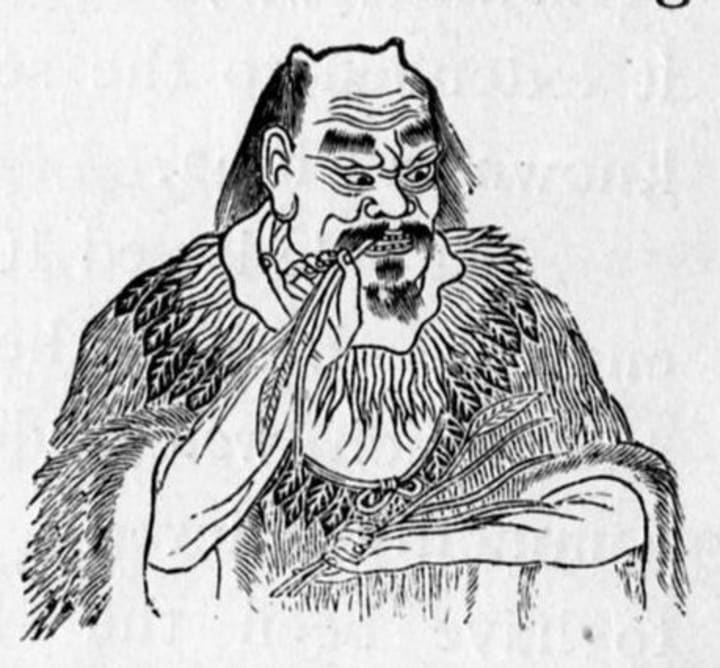
One story goes that when he first appeared on Earth, he realized that not enough wild food grew to satisfy the growing population of humanity. He began to instruct them on the construction and use of the plow and other agricultural implements; he then showed them how to sow fields. When the soil was ready for use, he instructed them to pray for new and plentiful food. Soon a red bird carrying seedlings appeared and began to sprinkle the seeds upon the newly ploughed fields. The Red Emperor then commanded the sun to shine down upon the fields and cereal plants quickly grew and multiplied. They harvested nine hundred baskets full of the grain. Still not satisfied with humanity’s progress, he instructed them to set up market stalls and showed them how to barter for items that they did not have. Finally, he lashed some of the plants around him with his whip and imbued them with medicinal properties. His subjects were so overjoyed and gracious for all that he had given them that they bestowed upon him the nomicker Divine Peasant and constructed a giant cauldron to boil herbs in. It still sits at the summit of the Shenfu Mountains to this day.
Though the Yellow Emperor prized peace and well being over all, his reign was challenged once again, this time by Chiyou. Chiyou and the Yellow Emperor had been friends for many years, but that all changed for the ambitious God once the Yellow Emperor assumed the throne. Many years into his ex-friend’s reign, Chiyou gathered all manner of beings who were dissatisfied with the Yellow Emperor’s rule. Seeking an easy victory to solidify his claim, he marched on the south where the aging Red Emperor would be an easy mark. Tired of warfare and strife, the Red Emperor fled his land and Chiyou moved in, claiming it as his own. Bolstered by his success, he marched north. The Yellow Emperor, remembering his dear friend, tried to talk sense into him, but it was for naught. Chiyou still waged a brutal war against the Yellow Emperor’s forces.
When their forces met, they were evenly matched, but Chiyou employed dishonorable tactics, such as filling the area that Yellow Emperor’s forces were in with a thick fog. Not only did they lose a sense of direction, but many of the animals became fearful and fled, quickly being slaughtered by Chiyou’s forces in their disorganized retreat. An innovative God by the name of Feng Hou used magic and ingenuity to craft a device that led them from the fog. Unfortunately, Chiyou had more dirty tricks up his sleeve including rains and floods. Though the Yellow Emperor eventually overcame each of these obstacles, his forces were diminished and he knew that Chiyou would not stop until he was defeated.
Sitting in the Hanging Garden, the Yellow Emperor pondered his predicament. Though he was certain that he could defeat Chiyou, he knew it would come at a great cost. Then a great Goddess came down from the Heavens and they spoke at length. He told her of his fears for his people and she in turn told him of strong tactics which the strongest of the Gods had devised on his behalf that would lead him to certain victory. Emboldened by his mandate from Heaven, the Yellow Emperor marched to battle once more. He soundly defeated each of Chiyou’s dishonorable tactics and eventually captured the rogue God. Chiyou fought strongly against his manacles, bleeding onto them. He showed no remorse for his actions, leaving the Yellow Emperor with little choice. Chiyou was executed and his bloody manacles were cast into the forest. It is said that the leaves there never fail to turn the brightest red in the autumn.
Tired of battle, the Yellow Emperor spent the rest of his time on earth teaching humanity to build structures to protect themselves from the elements, bestowed upon them the gift of music, and introduced writing. Soon though, the Yellow Emperor was called back to Heaven. He ascended once more, riding on the back of a dragon, followed by other beings whose time on earth had also reached an end.
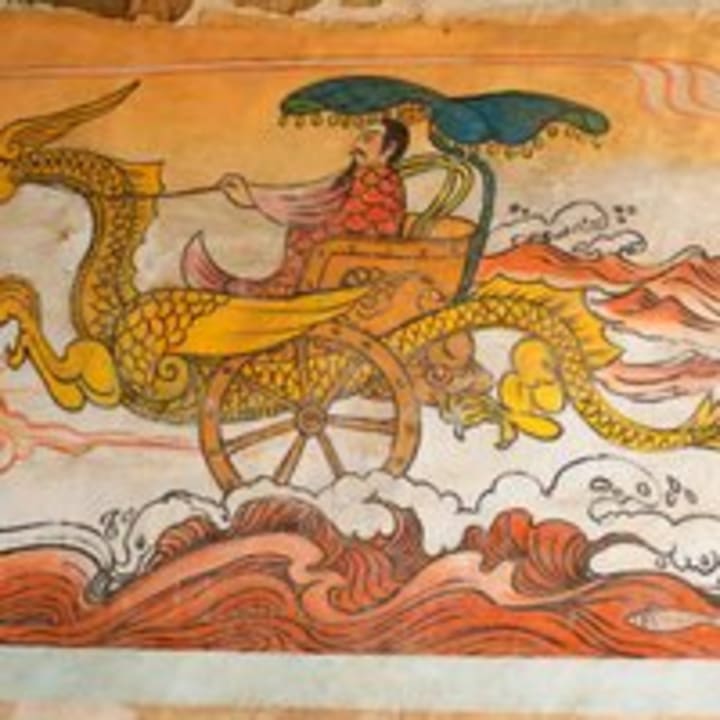
Confucianism
Now, all of this is said to have happened long before Confucius (Kǒng Fūzǐ,) was born, but some form of this story and others like it would have been apart of his teachings from an early age and even as a young boy, his thirst for knowledge was unparalleled. He lived from 551 BCE to 479 BCE in a China very different from the one that Confucius studied. Gone was the idyllic, harmonious central leadership of a past Golden Age. Instead, the entire area was a fragmented mess of small states that vied for power. Many of the leaders were despots who were only out for their own veneration and power.

Confucius saw the suffering and chaos in the world and felt a drive to fix it. He traveled and studied to gain more knowledge and a greater understanding of the world in an effort to correct its many flaws. He came to believe that the problem was the lack of morality. The solution, he found in a familiar institution: the family.
Families have an inherent structure already built into them with duties and responsibilities for each person. They teach us to love and honor, two ideals that Confucius wanted to harness to make the world a more just and orderly place. Under Confucian ideals, each member of the family had spelled out mutual roles and responsibilities to fulfill (remember how in Mulan how she went to the matchmaker to find a husband? That was part of a daughter’s duties to her family). When each person fulfilled their duties, order prevailed and humanity flourished. It was also imperative that the leadership adopt the same understanding of social responsibility. Sons owed their fathers “loyalty and obedience” and fathers owed their sons “affection and care” (Genius). Leaders owed their subjects protection and education and in turn subjects owed honor and fealty to their lord.
Not only did Confucius see these duties in families throughout China, but also saw spiritual rituals designed to bring good fortune to the participants by keeping their ancestors happy. The Chinese practiced ancestor worship (back to Mulan… we see multiple prayers to the ancestors and then the scene where they decide how to handle Mulan’s rebelion) and performed numerous rituals to keep the balance in the universe and to honor and appease their forerunners. Generally considered more of a philosophy than a religion, it is these rituals and others like them that nudge Confucianism slightly into the category of religion. Our other two philosophies (Buddhism and Taoism) fit the definition of religion better than Confucianism.
Confucius, a great believer in humanism (a philosophy centered around the agency and value of humans), argued that the emphasis should be placed on the living instead of the dead. In the Analects, the book of Confucian wisdom and conversations, Confucius said, “If you don’t know how to serve the living, how will you serve the dead?” He wanted a dramatic shift from rote rituals to an emphasis on the people around you with a focus on feelings and energy in these rituals. This reverence would not only improve you, but in turn the world around you. He took rites and rituals of ancient Chinese practices, which he saw as corrupted, and updated them to better reflect the humanism that he believed in so deeply.
Ritual is at the heart of Confucianism. They’re more than just lighting incense and saying the proper words. The old rites had gone stale and lost their meaning. People practiced them because they had to, not because they felt a bond or energy. Confucius argued that they needed to be felt deeply, internalized to show true reverence in the action.
Under Confucianism, everything is a ritual, from fixing your clothes to etiquette. For instance, the number of times you shake hands with a new friend is only two shakes. The idea is that you are respecting their time and showing courtesy in public places. By internalizing these courtesies and focusing on honoring your fellow man, the world would be a happier, more orderly place. A society that is perfectly ordered would bring harmony to the home then through society and into the universe as a whole.
All of this culminated in a search for ren. Translated differently throughout the ages, starting with “virtue” and now “humanity,” ren permeates everything. It is the struggle to be fully human, that is, a fully empathic human. Ren is a pursuit of a lifetime and has never been fully actualized, not even by Confucius himself. In practice, it is a character building exercise. Once you have learned the information, it’s about turning that information into wisdom, striving for the most moral, empathetic way of conducting the actions of your life.
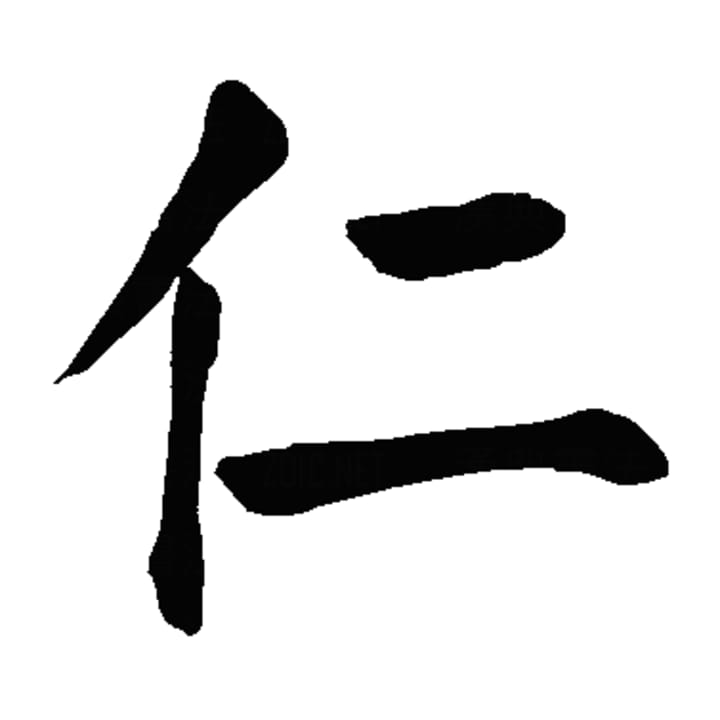
Confucius realized that the best way to implement his plan for an orderly China was from the top down. He took various cabinet posts to try to influence the leaders towards virtuous rule but to no avail. Rulers in Conficius’ day were too busy being plotted against by their sons and other rulers to give much thought to his enlightened moral philosophies. Also, Confucius taught that a ruler has the right to rule from heaven, but the heavens can take it away when they don’t fulfill their end of the bargain. When the heavens take it away, the people can rebel and overthrow. I’m sure that the leaders didn’t like the sound of that.
When convincing them didn’t work, he began traveling again, but this time he had students. He was exceedingly meritocratic, accepting students from even the lowest of classes. This was a huge change for Chinese society, really most societies in the world at that time. He taught that if you are virtuous, then you are deserving, no matter who your parents were. This idea, however, did not extend to women, only men.
It is important not to lose sight of how integral education is in Confucianism. Confucius encouraged free thinking and questioning. The Analects is filled with conversations from Confucius’ time (though it was compiled about a hundred years after his death) that involve questions and answers. He rarely gave straight forward answers, instead posing the question that they had asked a different way or giving the questioner an allegorical story. He despised rote memorization, encouraging people to think about what they were studying with the goal of instinctively knowing how to act virtuously in any situation.
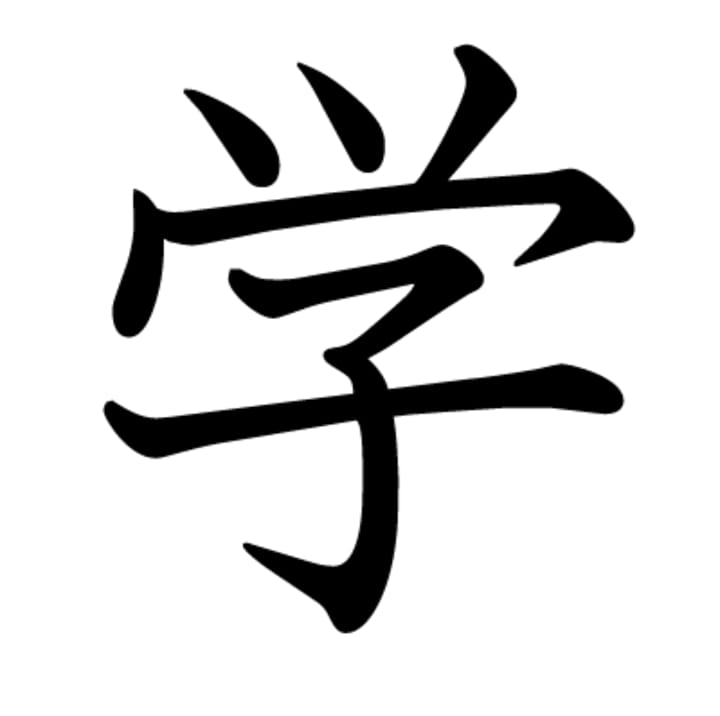
Unfortunately for our good philosopher, he died with his dream unfulfilled. Several hundred years passed before the Han dynasty revived it and made it the keystone of its policy. Over the years, it would wax and wane in popularity along with the other two philosophies
Now, we go back to the tales of the Yellow Emperor…
Remember that these stories have been compiled and edited over thousands of years. We have no way of knowing how much truth rests in these stories, but we can see how they reflect Confucian ideology. Look at our good Yellow Emperor. He did not shy away from splendor, but his primary concern was for the welfare of his people. Then there is the fiery Red Emperor: even after his defeat, he put the wellbeing of his people before his shame. These two are just a small sampling of examples of benevolent rule. There are many more cases sprinkled in the stories of ancient China.
They also show us the desire for order using top down leadership. These were not five friends enjoying a casual jaunt on earth. These were five Gods who decided to explore the newly populated earth with an inherent hierarchy. They immediately set about bringing order to the chaos of earth, both by controlling wild animals and by taming the land to provide for the people.
Confucius’ Legacy
For one thing, I’m sure you’ve heard the crude saying “Confucius says…” This is because the teachings of Confucius were so widespread throughout China. Education was the central piece of Confucianism and even those who were not able to have formal schooling still knew of his teachings. I, for one, would be more interested in fortune cookies if they started printing his sayings on them again instead of just wishing me luck.
Society, in theory, became more meritocratic as well. While not all boys were educated, many were and then his destiny became determined by how well he could score on the civil service tests. On account of this emphasis, Chinese society was far more advanced than anywhere in the world for hundreds of years. While Europe was deep in the dark ages, China was expanding its examination system to include more non-aristocratic men (thanks Empress Wu, an exceedingly fascinating woman who deserves her own article). Now, while these tests seemed to be administered fairly, there was still the issue of the education system itself. Education was not provided by the government, therefore, unless you could pay for it, there was little hope of moving up. Social mobility was fairly rare. Additionally, because it was viewed that wealth was bestowed upon the virtuous, the poor were looked down upon very unfavorably.
The role of women cannot be glanced over either. Confucius refused to teach women and in the Analects, women are barely discussed. By leaving their roles unnamed, tradition became that women were subordinate first to their fathers and then to their husbands. Their duties confined them primarily to the home and forbade school. Concubines were common and infanticide (when the result was a daughter) was a common occurrence even in recent history. Foot binding was a popular practice and is better described as foot torture. It is important to note that there is nothing in the Analicts itself that subjugates women. Though not advocated by Confucius, the rigidly male dominated society allowed these practices to develop. Some progress has been made in recent years and I hope to see more in the future.
Many dynasties rose and fell in the years after the adoption of Confucian ideas and they adhered to his teachings (or that of the other philosophies) as they saw fit, but Confucianism wound its way deep into the psyche of the people. It was only until the turn of the twentieth century that China began to question its adherence to his teachings. The rest of the world had outpaced them technologically and they saw the rigidity of Confucianism holding them back. Then, once Chairman Mao took over and the Cultural Revolution kicked into gear, his teachings were outlawed completely. Important texts and even his grave site were destroyed.
With the easing of restrictions starting in the 1970’s, China has seen a resurgence of Confucian teachings. Today, thousands of schools teach his philosophy to children of all ages. In one example that I saw, both boys and girls are admitted to learn the philosophy, but girls learn the tea ceremony while boys learn Chinese chess.
Along with the other teachings of ancient China, Confucianism has deeply permeated the cultural ethos of the country and that of its neighbors. I am interested to see where these philosophies will take the Middle Kingdom in the future and how they will evolve to meet the future.
Remember to check out the chainmaille shop. All Halloween is currently on sale, so be sure to grab the deals while you can.
References
郭凯. “Confucian Kindergartens Teach Respect,” January 14, 2017. https://www.chinadaily.com.cn/china/2017-01/14/content_27952128.htm.
Confucius. The Analects. Internet Classics Archive, 500AD. http://classics.mit.edu/Confucius/analects.html.
Cook, B., & Bancroft, T. (Directors). (1998). Mulan [Motion picture on DVD]. United States: Walt Disney studios home entertainment.
Genius of the Ancient World. Genius of the Ancient World: Confucius. Netflix, 2015. https://www.netflix.com/title/80185801.
Latini, Davide, trans. “The Creation Myths.” Essay. In Chinese Myths & Tales: Epic Tales. London: Flame Tree Publishing, 2018.






Comments
There are no comments for this story
Be the first to respond and start the conversation.